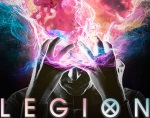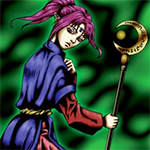 Add Review
Add Review Subscribe
Subscribe Nominate
Nominate Submit Media
Submit Media RSS
RSS
An Assistant Pig-Keeper At Heart
 kumada
kumada- 12/13/2011 10:44 PM
- 1981 views
The Review
To be perfectly honest with you, I was expecting parody. When I unpacked the zip file onto my desktop, I was more ready for something like Tales of the Games' "Diary of Anne Frank" than an actual retelling of Lloyd Alexander's "The Book of Three."
Lysander's game is unabashedly faithful to the source material. It's so earnest, so heartfelt, that it occasionally makes you go misty-eyed. Most of its dialog and scenarios are taken directly from the book. The handful of changes--revisions necessary to gameify a fifty year old children's book--do stand out, especially to a purist, but they also broaden the scope of the game beyond the nostalgia market. The Book of Three is eminently playable in its own right.
Despite a slow pick-up and a difficulty curve that tapers off badly towards the end, The Book of Three implements clever, accessible mechanics into an otherwise vanilla turn-based RPG combat system, keeping the fights enjoyable and limiting that ol' grindy feeling that sometimes creeps into the classics. A random treasure generation algorithm was intended to add some variety to the game, and it's a neat idea, but it didn't actually end up influencing my gameplay experience. Fortunately, it didn't harm it either.
This might not be an ideal choice for a purist, or for someone who's looking for radical new mechanics and flashy graphics, but it's perfectly enjoyable if you accept it for what it is: a fan tribute with its heart set firmly in the right place.
Further Analysis, For Those Who Want It
Story:
The Book of Three is based off of a children's book by the same name, which in turn drew its influence from Celtic mythology (and from Tolkein. In some ways that was kind of the whole point of Alexander's writing: to re-tell Tolkein's Lord of the Rings as a humanist character piece, rather than a high fantasy travelogue.) The dialog sounds stilted, but never clunky, and the characters are nuanced enough to be fun to read, even if they never really hit their growth arcs. Every so often, a line will stick out as too modern and let you know that Lysander was adding some of his own flair, but the plot as a whole is clear and engaging, if uncomplicated.
It is worth mentioning that, towards the end of the game, the plot diverts quite suddenly from the source material, leading up to a head-on attack into an army's camp, but this performs the function of giving the game a final battle, and the story neatly syncs back up with the book when this is done.
Characters:
Mechanically, the best part of the game is the ways in which the various party members interact with the world. Your hero, Taran, can change his skill set every time he sleeps, selecting a new set of 'dreams' for the coming day. Gurgi, the rogue, can automatically whistle up an inn or an item store out in the field. Fflewdor, the bard, can turn every encounterable enemy into a skill, with varying consequences. Eilonwy, the mage, improves her magical abilities by harvesting the raw essences of reality from passing animals.
Due to plot reasons, two more characters only cameo briefly in the party, and this is something of a disappointment. Neither one is particularly interesting (one comes with the ability to change his skills and stats in the heat of combat, and the other is simply a tank,) but this doesn't detract from the game.
Sound Design:
The Book of Three gets this spot on. The soundtrack is composed of midi-fied Celtic tunes that fit the retro aesthetics of the game like a glove.
Difficulty:
This is one of the areas where The Book of Three has some issues. What starts off as a challenging treck through retro-hell, where mobs of squirrels descend on you out of the trees to feast upon your charred corpse because you opened the wrong treasure chest and picked up a special item that fries you every time you go into combat, quickly turns into a cakewalk. A couple of special items make healing trivial, and paying attention to the various ways that your party members can develop turns them all into invincible juggerbeasts. Listening to the characters talk about how charging into the enemy's stronghold is certainly suicidal, and then going ahead and charging anyway, only to wreck every single soldier in a fifty mile radius, undermines the tension in the game. Likewise, while the game spends some time constructing the final boss as an unkillable nightmare, my party was able to continually curbstomp him until the plot told me to stop.

Posts 

Pages:
1
This review is pretty much spot-on.
The Book of Three is pretty much a hallmark Lys-game--tons of character and unconventional skill systems, spotty graphics, great writing (although here it's more like a great adaptation.) Probably isn't his best work, but it's definitely overlooked.
Nice work with this!
The Book of Three is pretty much a hallmark Lys-game--tons of character and unconventional skill systems, spotty graphics, great writing (although here it's more like a great adaptation.) Probably isn't his best work, but it's definitely overlooked.
Nice work with this!
This is a great review.
(The first draft of the above sentence had the word 'fuck' in it, but I revised it while writing.)
(The first draft of the above sentence had the word 'fuck' in it, but I revised it while writing.)
Great review, I agree with everything you mentioned. Though I might've even considered giving this game a four out of five.
I was kinda torn. I think that, if I hadn't gotten so badly stuck on the stealthing segment, it would've easily gotten my four out of five (which I consider to be a 'play it even if you haven't read the books' review.) As is, I think it has a lot of heart, but nostalgia glasses add an extra half a star to the experience.
Pages:
1













